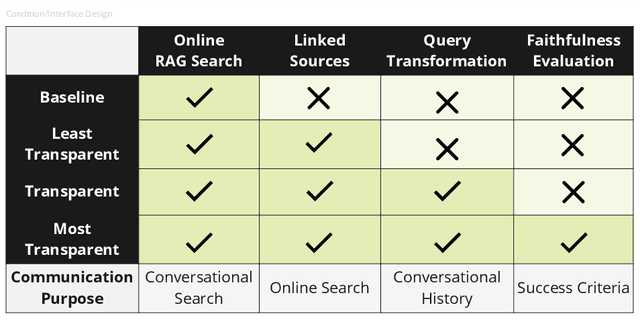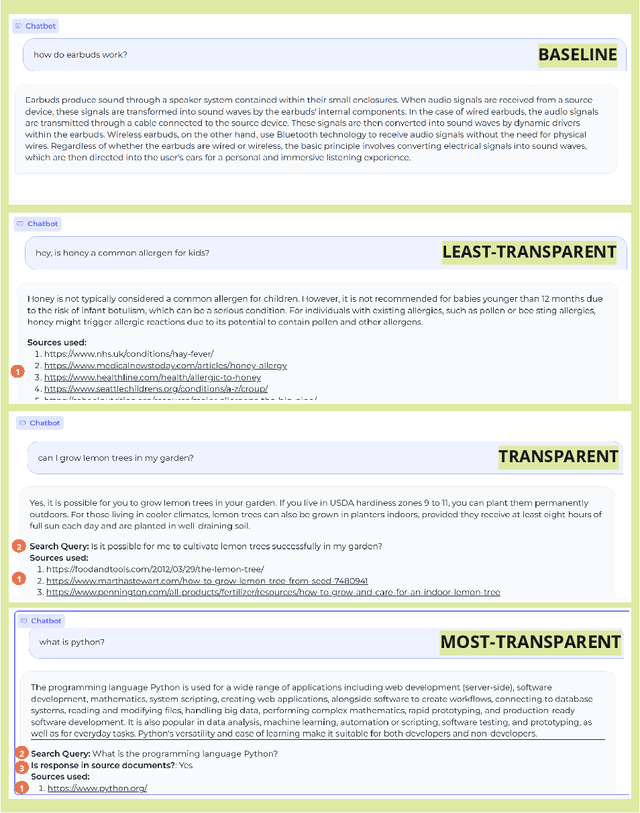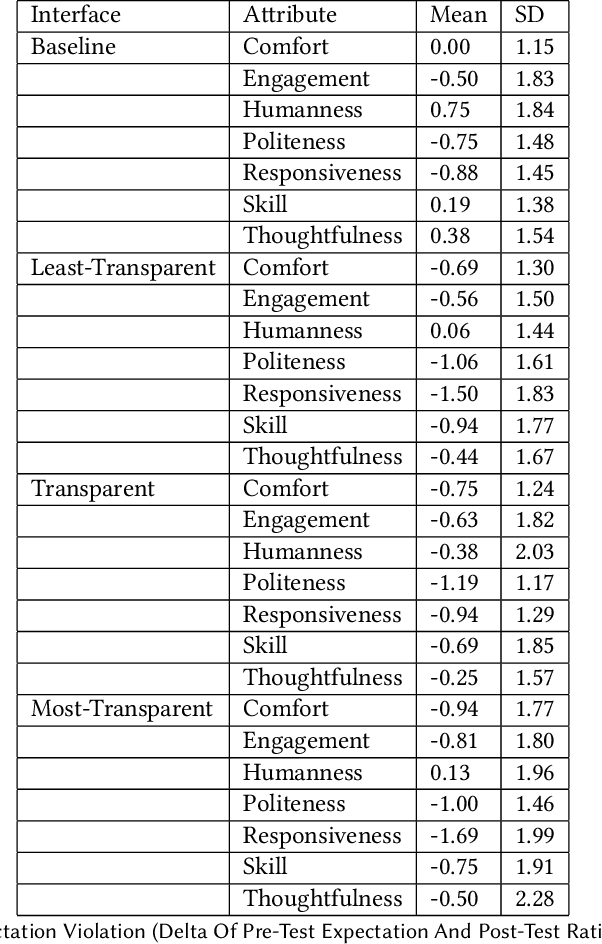Gerd Kortuem
Understanding Mental Models of Generative Conversational Search and The Effect of Interface Transparency
Jun 04, 2025



Abstract:The experience and adoption of conversational search is tied to the accuracy and completeness of users' mental models -- their internal frameworks for understanding and predicting system behaviour. Thus, understanding these models can reveal areas for design interventions. Transparency is one such intervention which can improve system interpretability and enable mental model alignment. While past research has explored mental models of search engines, those of generative conversational search remain underexplored, even while the popularity of these systems soars. To address this, we conducted a study with 16 participants, who performed 4 search tasks using 4 conversational interfaces of varying transparency levels. Our analysis revealed that most user mental models were too abstract to support users in explaining individual search instances. These results suggest that 1) mental models may pose a barrier to appropriate trust in conversational search, and 2) hybrid web-conversational search is a promising novel direction for future search interface design.
Contestable Camera Cars: A Speculative Design Exploration of Public AI That Is Open and Responsive to Dispute
Feb 09, 2023Abstract:Local governments increasingly use artificial intelligence (AI) for automated decision-making. Contestability, making systems responsive to dispute, is a way to ensure they respect human rights to autonomy and dignity. We investigate the design of public urban AI systems for contestability through the example of camera cars: human-driven vehicles equipped with image sensors. Applying a provisional framework for contestable AI, we use speculative design to create a concept video of a contestable camera car. Using this concept video, we then conduct semi-structured interviews with 17 civil servants who work with AI employed by a large northwestern European city. The resulting data is analyzed using reflexive thematic analysis to identify the main challenges facing the implementation of contestability in public AI. We describe how civic participation faces issues of representation, public AI systems should integrate with existing democratic practices, and cities must expand capacities for responsible AI development and operation.
 Add to Chrome
Add to Chrome Add to Firefox
Add to Firefox Add to Edge
Add to Edge